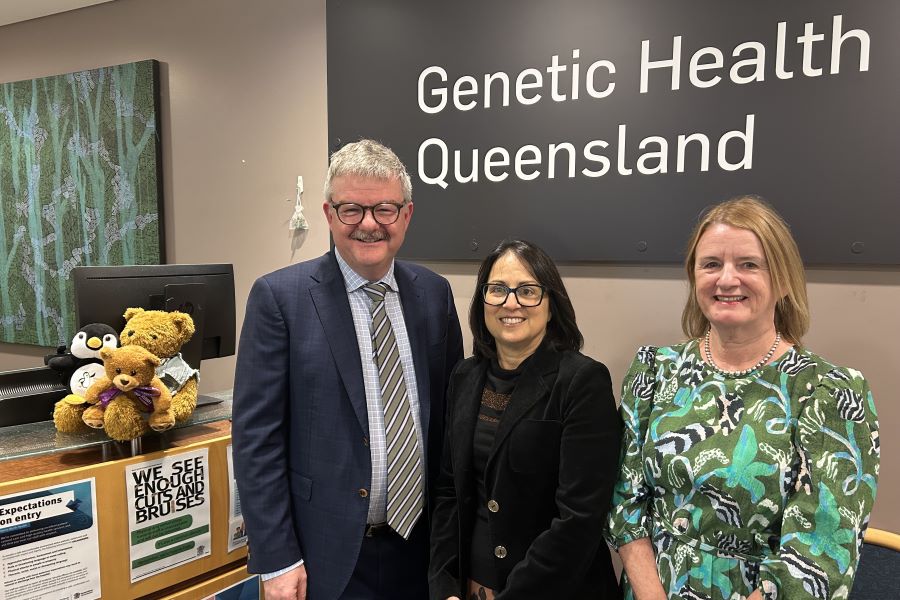
Dr Michael Gattas Staff Specialist Genetic Health Queensland, Christine Franzmann former patient and Dr Julie McGaughran Director Genetic Health Queensland
Genetic Health Queensland celebrates 30 years
On Friday 20 June, Genetic Health Queensland celebrated 30 years of helping Queenslanders find answers to life-affecting health questions.
Over the past three decades, the team at Genetic Health Queensland (GHQ), based at the Royal Brisbane and Women’s Hospital, has supported more than 350,000 individuals to better understand and manage their diagnosed genetic condition.
GHQ is Queensland’s sole public clinical genetics service, providing diagnosis, assessment, counselling and management advice for people and families with genetic conditions.
The service offers comprehensive support for both common and rare genetic conditions. People with breast cancer is one of the most common reasons for referral.
GHQ sees patients from pregnancy to adult life, often supporting different generations across individual families.
During the course of a diagnosis, patients have access to a specialist team including clinical geneticists, advanced trainee doctors, genetic counsellors and clinic assistants.
Clinics are held at 12 locations throughout Queensland to ensure patients have ready access to the specialist skills required to support the diagnosis of genetic conditions. Telehealth is also offered to give patients access to services at home.
GHQ Director Prof Julie McGaughran said supporting individuals with a diagnosis of a genetic condition can be a complex and lengthy process.
“Individuals are referred to see us following an appointment with their general practitioner or specialist who indicated the need to understand if there is a genetic diagnosis, what it means for the patient and what ongoing support they may require,” Prof McGaughran said.
“Many patients have little knowledge about their condition and rely on our team to give them some difficult answers.
“Some diagnoses, especially for rare conditions, can take several months due to the complex diagnostic assessments and testing processes involved.
“This period can be an anxious time for people, as it is essentially a waiting game.
“Once a diagnosis is available, our role is to help people understand their condition and work out their next steps.
“While the effects of some genetic conditions will not present until a certain stage in life, we can provide answers early and allow people to prepare.
“Getting answers is often a life-changing moment for people as it allows them to plan for their future and potentially the health of their children, future children and other family members.
“We are in an exciting time where increasingly we are seeing the possibility of treatment for genetic conditions.”
